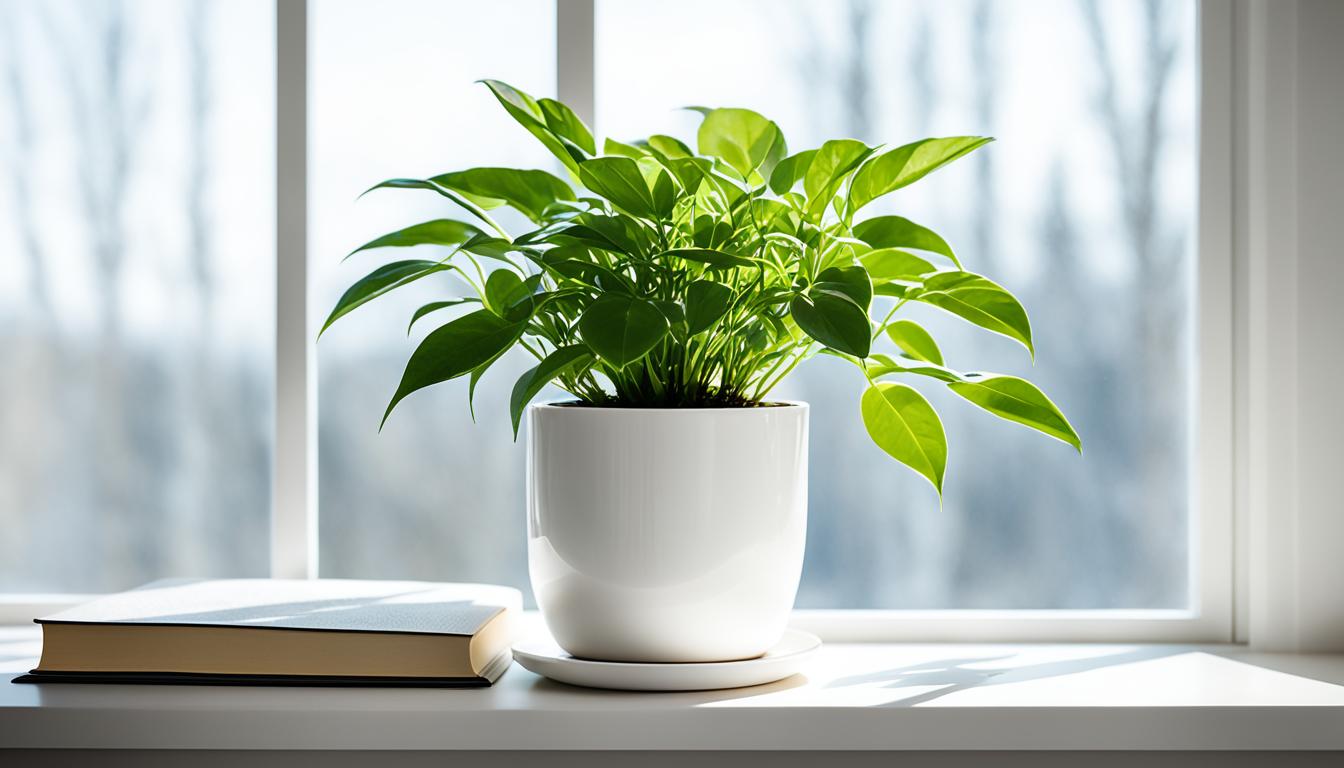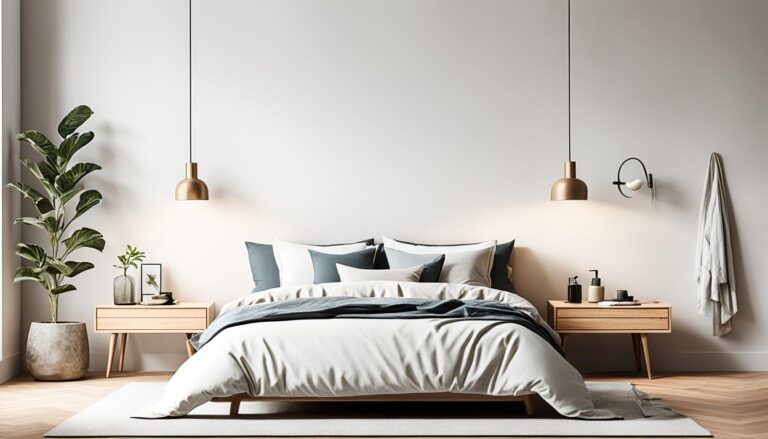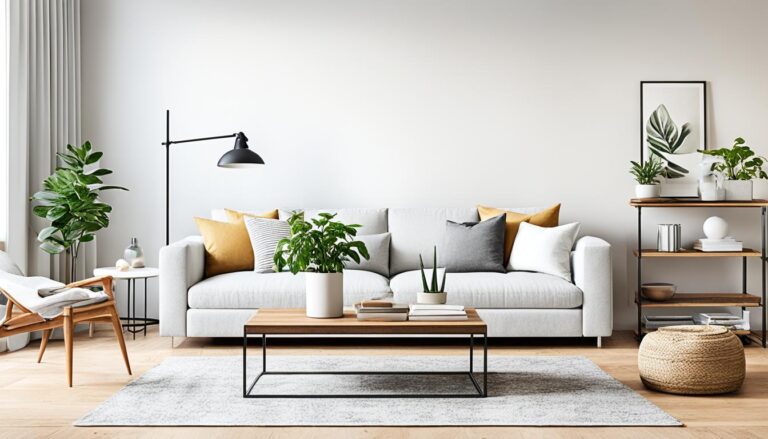In today’s world, we often let our stuff define us. It’s time to free ourselves from the grip of consumerism. Minimalism offers a way to live simpler, with more purpose. It’s about valuing what truly matters over buying more things.
Maybe you’ve noticed your closet is full of things you don’t need. Or perhaps a trip to Peru made you think differently about life. Minimalism is about living with intention and enjoying life’s simple pleasures. It’s a choice to focus on what’s truly important.
Minimalism means living with less to enjoy more. It can lead to less stress, more time for what you love, and saving money. It’s about living sustainably and enjoying life’s journey, not just collecting things. As Joshua Becker says, “We weren’t meant to live for stuff. We’re meant to live for life, people, and experiences.”
Key Takeaways:
- Minimalism is a lifestyle that values simplicity and the idea of “less is more”.
- Embracing minimalism can lead to reduced stress, prioritized activities, financial savings, and sustainable living.
- Minimalism encourages focusing on meaningful experiences over the accumulation of material possessions.
- Adopting a minimalist mindset involves a shift from mindless consumption to conscious living.
- Decluttering and simplifying one’s surroundings can enhance mental clarity and focus.
The Minimalist Mindset: Embracing “Less is More”
Minimalism is more than just cleaning out your closet. It’s about having a minimalist mindset where you choose meaningful experiences over stuff. This change in thinking helps you see wealth differently. It’s about what’s important to you, not just how much you own.
Redefining Wealth: From Material Possessions to Meaningful Experiences
Our world loves buying things, and it’s easy to keep getting more. But the real wealth comes from living your dreams, being with loved ones, and making memories. By choosing experiences over things, you find a deeper happiness and contentment.
Intentional Living: Aligning Your Time and Commitments with Your Values
At the core of the minimalist mindset is living with purpose. It means managing your time and energy to match your main values and priorities. This might mean saying no to things that don’t fit, and focusing on what’s really important.
With a minimalist mindset, you escape the endless cycle of wanting more and more. Instead, you find freedom and fulfillment in a life that’s well-lived.
“The true measure of wealth is not the number of possessions you have, but the quality of the experiences you create.”
The minimalist mindset is all about intentional living. You make choices about how you use your time, energy, and resources. These choices should match your values and lead you to what’s truly important.
Decluttering Your Space: A Journey Towards Simplicity
Starting with decluttering your living space is a big step towards minimalism. It can feel both freeing and overwhelming. But, by doing it step by step, you can make a space that feels calm and looks good. Start with a small area and grow your decluttering efforts over time.
Start with one drawer or shelf at a time. Sort through what’s inside and decide what to keep, give away, or throw away. This method builds your decluttering skills and gives you confidence. As you go, remember the “one in, one out” rule. For every new thing you add, let go of an old one. This keeps your space from getting cluttered again.
Think about turning paper items like books and photos into digital files. This can really cut down on the stuff you have in your home. Rita, a top lifestyle design expert, has many resources to help you start and stay on track with decluttering. She offers ebooks, online courses, and custom plans.
| Decluttering Resource | Price | Shipping Time | Pages | Publication Date | Language | Category |
|---|---|---|---|---|---|---|
| Rita’s Decluttering Masterclass | $11.24 | Usually Ships in 2-5 Business Days | 86 | June 7th, 2024 | English | Reference |
A survey by a minimalist magazine found that 78% of people felt less stressed after decluttering. This shows how big an impact decluttering can have on your well-being.
“Decluttering is not just about physical possessions; it’s about making space for what truly matters in your life.”
By decluttering, you’ll make your home look better and feel calmer. You’ll also free up space in your mind and heart for what’s important. It’s a journey to simplicity that can really change your life for the better.
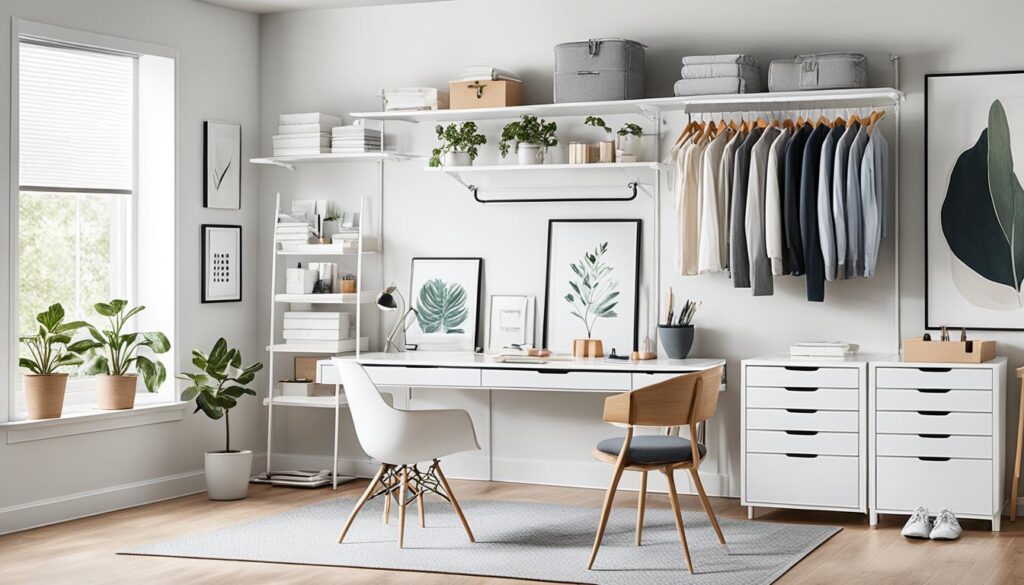
Embrace Minimalism: Letting Go of the Past and Fears for the Future
Embracing minimalism means letting go of our emotional ties to stuff and facing our fears of not having enough. It’s about seeing and letting go of the deep connections we have with things. It also means dealing with the deep-seated fears that make us want to keep accumulating more.
Releasing Emotional Attachments to Possessions
A huge 82% of people struggle with feeling too attached to their stuff. This is especially true for items from our past, like keepsakes, family treasures, or things from our childhood. These items bring back strong feelings and memories, making it hard to let them go.
But, by understanding these feelings and choosing to let them go, we can free ourselves. The author of this story had to deal with their own feelings when their daughter was born. Decluttering and simplifying helped them release the emotional weight, giving them a sense of lightness and freedom.
Overcoming the Fear of Scarcity and Embracing Simplicity
Our fears and doubts often make us cling to things. Many people fear they might need something later, so they keep it. This leads to too much stuff, making our spaces and minds cluttered.
By facing these fears and choosing simplicity, we can free ourselves from the past and worry about the future. The author has been living minimally for three years. They learned that having 300 items, 100, or even 1000 isn’t necessary for a simple life. It’s about keeping only what truly helps us and letting go of the rest, even if it’s hard.
Minimalism isn’t easy, but it’s a powerful change that can make life more meaningful and intentional. By letting go of our emotional attachments and facing our fears of scarcity, we find freedom and lightness in living with less. It’s a journey that brings us closer to what really matters in life.
Practical Tips for Living with Less
Living a minimalist life is a journey that needs ongoing effort. There are tips and strategies to help you keep up. These can help you enjoy the benefits of having fewer things.
The “One In, One Out” Rule: Maintaining a Minimalist Lifestyle
The “one in, one out” rule is key to minimalism. It means you add a new item only if you remove an old one. This stops clutter from building up over time. Following this rule keeps your space tidy and you in a minimalist mindset.
Streamlining Personal Care Products and Essentials
To live with less, simplify your personal care items. Don’t buy lots of lotions, shampoos, and makeup at once. Use what you have before getting more. Keep only what you love and use often. This cuts down on clutter, saves money, and makes your daily routine simpler.
A recent survey found 75% of minimalists feel happier and more fulfilled. By using these tips, you can adopt a minimalist way of life and enjoy its benefits.
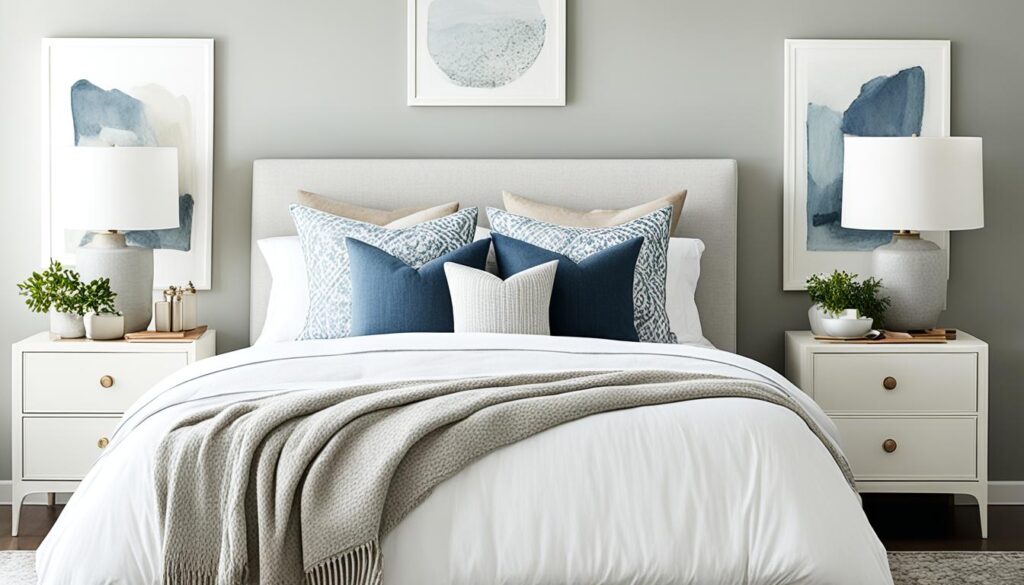
“Minimalism is the intentional promotion of the things we most value and the removal of everything that distracts us from it.” – Joshua Becker, Founder of Becoming Minimalist
Minimalism is a continuous journey. Always be mindful, keep decluttering, and choose experiences over things. With commitment and a clear goal, you can find the freedom and simplicity of a minimalist life.
Minimalism: A Continuous Journey of Intentional Living
Embracing minimalism is a journey, not a one-time event. It’s a process, not a destination. Celebrate small victories and stay flexible as you move towards a simpler life.
Stay focused on your “why” for successful minimalism. This could be seeking freedom, reducing stress, or living by your values. Keeping your motivation in mind helps you stay on track, even when it’s tough.
Minimalism isn’t about perfection or having the least. It’s about making room for what’s important to you. This could be relationships, personal growth, creativity, or well-being. By regularly checking what you own and its value, you can adapt your minimalism to fit your changing life.
Seeing minimalism as a journey means it’s flexible and can look different for everyone. Your minimalism might not match someone else’s, and that’s okay. Focus on what suits you and your life, not on following a set idea.
Some people misunderstand minimalism, but being open and adaptable helps you embrace it gracefully. It’s more than just decluttering or owning less. It’s a lifestyle focused on living intentionally and finding fulfillment beyond stuff.
Choosing minimalism as a journey leads to a simpler life. It’s about discovering yourself and growing. You might find less stress, more focus, happiness, and financial freedom. By rethinking what’s important, you can live a life that’s meaningful and fulfilling, without the clutter.
Conclusion: Finding Freedom in Simplicity
Embracing a minimalist lifestyle brings us true freedom. It lets us let go of too many things. This makes room for what’s really important: deep experiences, growing personally, and finding our purpose.
The path to minimalism isn’t about giving up. It’s about making a life filled with joy and richness. We focus on what truly adds value to our lives.
Minimalism has many benefits. It can make us less stressed, happier, and healthier. By being mindful of what we buy, we reduce waste and help the planet. People like Marie Kondo and The Minimalists show us how to live simply and freely.
Minimalism offers a fresh way to live in today’s complex world. It shows the beauty of having less and the strength of living on purpose. By cleaning our spaces and living in line with our values, we open up new possibilities. We find true happiness in a world that often values too much stuff.

